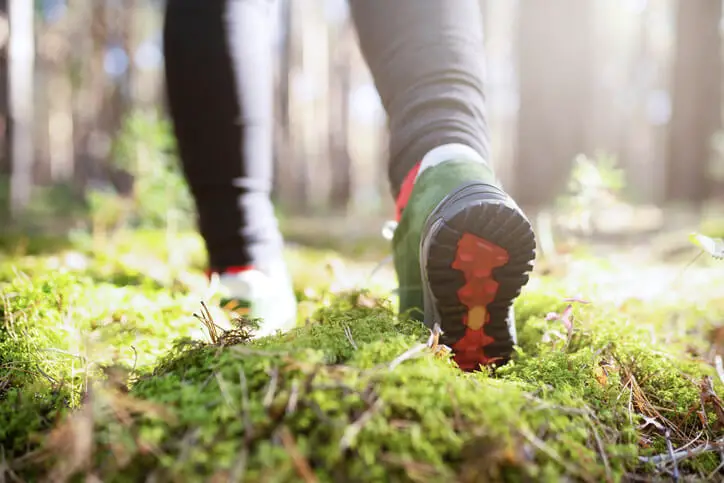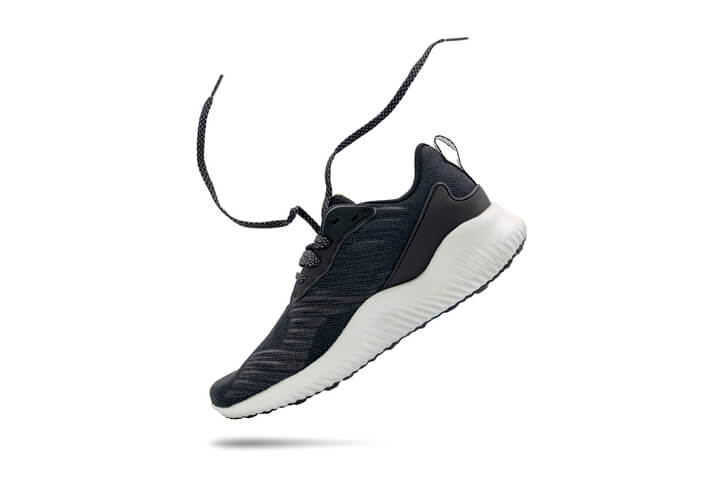When it comes to hiking, having the right gear is essential. A good pair of hiking boots is one of the most critical pieces of equipment. However, not everyone has hiking boots, and buying a new pair can be expensive. If you're in this situation, don't worry - plenty of other options will work just as well.
Some alternatives include regular hiking shoes, trail runners, running shoes, tennis shoes, or sneakers. Whatever type of shoes you select, ensure they protect your feet, provide ankle support, flexibility, good traction, etc. To learn more about the hiking boot alternatives, stick around for the rest of the article!
More...

Table of Contents
Understanding the Importance of Proper Footwear for Hiking
People who enjoy hiking understand the importance of having proper footwear. Hiking boots are popular as they offer foot protection, ankle support, and traction on rough terrain. However, not everyone has or wants to invest in hiking boots.
Nevertheless, wearing hiking shoes designed for hiking trails is very important. That is because when hiking, your feet are your primary mode of transportation. They endure the weight of your body and the impact of the terrain. Proper footwear can help prevent injuries and discomfort while making your hiking experience more enjoyable. Here are some reasons why proper footwear is essential:
Support: Hiking involves walking on uneven ground, which can stress your feet and ankles. Proper hiking shoes can provide support and stability, reducing the risk of sprains and strains.
Protection: Hiking trails can be rocky, muddy, or debris-covered. Good hiking shoes can protect your feet from cuts, bruises, and other serious injuries, such as snake bites!
Traction: Slippery or steep terrain can be dangerous without proper traction. Hiking shoes with grippy soles can help prevent slips and falls.
If you are yet to buy hiking shoes, look for comfortable, supportive shoes with grippy soles. Ensure they fit well and are broken in before you hit the trail.
If you do not have proper hiking shoes to wear when hiking, you can also go for trail runner shoes or cross-training shoes. Any alternative is acceptable if it provides support, protection, and traction on the trail.

Alternatives to Hiking Boots
You don't always need hiking boots when it comes to hiking. Several alternatives to hiking boots can provide you with the necessary support and protection while hiking.
When choosing your hiking shoe alternatives, consider the trail length, terrain, and weather you will be hiking in. Depending on your requirements, you can go with one of the following hiking boots alternatives:
Running Shoes
If you plan a short hike, running or walking shoes can be an excellent alternative to hiking boots. These shoes are lightweight, flexible, and breathable, which makes them perfect for short hikes on easy terrain. However, they don't provide as much support and protection as hiking boots, so they may not be suitable for long hikes or hikes on challenging terrain.

Trail Running Shoes
Trail runners also wear good trail shoes with enough support and protection. These shoes have a rugged outsole that provides excellent traction on slippery or rocky surfaces and a reinforced toe cap that protects your toes from rocks and other debris. Trail running shoes are also lightweight and breathable, which makes them perfect for hiking in warm weather.
Approach Shoes
Approach shoes are a hybrid between hiking shoes and climbing shoes. They are designed to provide the necessary support and protection for hiking on challenging terrain and climbing on rocks and boulders. Approach shoes have a sticky rubber outsole that provides excellent traction on slippery surfaces and a reinforced toe cap that protects your toes from rocks, sharp objects, and other debris. They are very lightweight and breathable, which makes them perfect for hiking in warm weather.
Sandals
If you plan a short hike in warm weather, hiking sandals can be a good alternative to hiking boots. Sandals are lightweight, breathable, and comfortable, which makes them perfect for short hikes on well-maintained and easy terrain. However, they don't provide adequate support and protection, so they may not be suitable for long hikes or hikes on rugged terrain.

Factors to Consider When Choosing Alternative Footwear
Even though most hikers choose to wear hiking boots when going to hiking trails, there are a few factors that can help you decide whether hiking boots are the best option. The deciding factors include terrain, weather, fit, comfort, and durability. Here is more information on each:
Terrain
The terrain you'll be hiking on is essential when choosing footwear. If you're hiking on rocky terrain, you'll want shoes with a sturdy sole and good grip. If you're hiking on a muddy trail, shoes with good traction will help prevent slips and falls. For hiking on flat terrain, you can choose shoes with less aggressive tread, such as hiking sandals, tennis shoes, sneakers, or other shoes.
Weather
The weather can also play a significant role in your footwear choice. If you're hiking in hot weather, you'll want breathable shoes to keep your feet cool and dry. While flip-flops might not be the best option for hiking trails, you can choose between hiking sandals or running shoes.
You'll want insulated shoes to keep your feet warm if you're hiking in cold weather. In this case, hiking boots will be the top option. And if you're hiking in wet weather, you will need waterproof shoes to help keep your feet dry.
Fit and Comfort
Fit and comfort are always important when it comes to footwear. Whatever shoe type you choose, ensure it fits well and does not rub or pinch your feet. Look for shoes with good arch support and cushioning to help prevent foot fatigue. And if you're prone to blisters, consider shoes with a wider toe box to give your toes more room.
Durability
Finally, consider the durability of the shoes. Hiking can be tough on footwear, so you'll want shoes that can withstand wear and tear. Look for shoes with sturdy construction and materials that can withstand the elements. Hiking boots might be your best option, but you can also use more durable hiking sandals or tennis shoes.

Safety Measures for Hiking Without Hiking Boots
When hiking without hiking boots, it is essential to take specific safety measures to avoid injuries and ensure a safe and enjoyable hiking experience. Let's look into the safety measures you should follow when hiking without hiking boots:
Walking Technique
When hiking without hiking boots, paying attention to your walking technique is important. Make sure to take small and deliberate steps, landing on the balls of your feet instead of your heels. This will distribute all extra weight evenly and reduce the impact on your feet.
Also, keep your knees slightly bent and your back straight to maintain your balance and avoid falls. When descending, keep your feet turned to the side instead of walking straight down so that you can prevent slips.
Using Hiking Poles
Hiking poles are a great tool to use when hiking without hiking boots. They provide extra support and stability, especially when walking on uneven terrain. Hiking poles also help reduce the impact on your feet and knees, helping you enjoy hiking even more. Adjust your hiking poles to the correct height so they provide adequate support.
Avoiding Dangerous Terrain
If you do not have any hiking boots, you should avoid dangerous terrain, such as rocky or slippery trails. Stick to well-maintained trails and avoid hiking during or after rain, as the trail can become slippery and hazardous. Also, be aware of your surroundings and watch out for loose rocks or branches that could cause you to trip or fall.

Conclusion
In conclusion, experienced hikers will always recommend that you have special hiking boots or hiking shoes to wear on the trails. If you want to hike easier trails or do it in hot weather, you should consider alternatives such as trail runners, cross trainers, sneakers, hiking sandals, etc.
Please pay special attention to the factors we mentioned in choosing the proper hiking shoes. The safety measures discussed above must also be considered when selecting your next pair of hiking boots.
If you know any good hiking boots that you would recommend to interested hikers, please share their names in the comment section below. I cannot wait to read all about your experience with hiking boots and shoes!
- Are Merrell Shoes Good? – An Unbiased Review of Merrell Footwear - December 9, 2023
- Where Are Merrell Shoes Made? - December 9, 2023
- Camping in 40-degree Weather: Tips and Tricks - September 25, 2023


![Why Do Hiking Boots Have Red Laces? [5 Reasons Why] Why Do Hiking Boots Have Red Laces? [5 Reasons Why]](https://grandcircletrails.com/wp-content/uploads/2022/07/Why-Do-Hiking-Boots-Have-Red-Laces-150x150.jpg)
![Difference between Hiking and Trekking [What’s The Difference?] Difference between Hiking and Trekking [What’s The Difference?]](https://grandcircletrails.com/wp-content/uploads/2022/06/Difference-between-Hiking-and-Trekking-150x150.jpg)


![How Old Do You Have To Be To Go Camping? [Answer Here] How Old Do You Have To Be To Go Camping? [Answer Here]](https://grandcircletrails.com/wp-content/uploads/2022/05/How-Old-Do-You-Have-To-Be-To-Go-Camping-150x150.jpg)